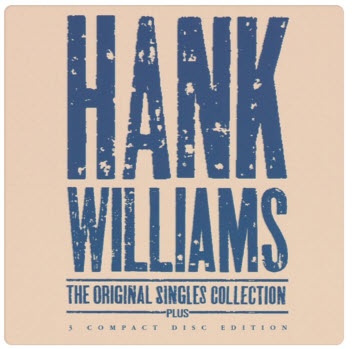
Though far from being Waylon’s first album, Lonesome, On’ry and Mean marked the beginning of outlaw country music.
Seems strange to think that Waylon Jennings had made almost two dozen albums and been characterized as a Nashville outlaw for several years before he actually fulfilled that promise with the release of Lonesome, On’ry and Mean in 1973. He never quite fit the stereotype of the sterile countrypolitan Nashville crooner from the beginning.
Some say it was because he got his start as a bass player with Buddy Holly, who was quite the genre-hopper himself. And others, who knew Waylon better, say it was because he never quite got over Buddy’s death in that 1959 airplane accident. Waylon was on that very tour and could easily have been a passenger on that fateful plane and he knew it. Instead, he took the bus to Fargo, North Dakota that cold January night along with Dion, staying in a cheap hotel so cold that the only way to get warm was to huddle around the radiators in the hallway. They played the next night in Fargo alongside a 15 year old kid named Bobby Vee who sounded a whole lot like Buddy when he sang his self-penned ‘Suzie Baby’. They all became stars. They never forgot Buddy.
Waylon ended up in Nashville, working under Chet Atkins and recording tunes by Harlan Howard, Bob Dylan, The Beatles, and even a few he wrote himself. Everyone recognized that he had an incredible voice, deep, authentic and mournful. Trouble was, he and Chet Atkins were polar opposites, and Chet virtually ran RCA in Nashville for years, so every Jennings release was a pitched battle between Waylon’s natural instincts and Chet’s polished production. Not to mention that Waylon’s clean cut look, mandated by the management, was just plain wrong. That’s how things worked in Nashville back then. Suits, ties, and no facial hair – if you wanted to play the Opry and make records you followed the rules.
That all changed when RCA agreed to let Jennings produce his own album – which turned out to be one of the greatest country music records ever made. He assembled some of the Nashville guys who had played on Dylan’s Blonde on Blonde and John Stewart’s seminal Americana record California Bloodlines: we’re talking Hargus ‘Pig’ Robbins, Pete Drake, Charlie McCoy and Norman Putnam, guys who could play lights out of any kind of music. Then Waylon chose the material: Steve Young’s amazing tune which became the title track, and Danny O’Keefe’s ‘Good Time Charlie’s Got The Blues’. Then his close buddy Willie Nelson (who also wanted to bust out of the Nashville cage) offered up ‘Pretend I Never Happened’, and Kristofferson’s ‘Me and Bobby McGee’ seemed to fit the bill, and before you knew it Jennings had himself an album other country musicians have been trying to imitate ever since.
From the opening notes of the title track, you can hear something new and subversive in Waylon’s voice that cries out in a fury, ‘I been travelling these highways/ I been doing things my way/ it’s been making me lonesome, on’ry and mean.”
By the time he gets to Mickey Newbury’s ‘San Francisco Mabel Joy’ you find yourself thinking he’s got something no other country singer ever had or has or will have, except perhaps for Patsy Cline. Waylon can really hang you up the most. He can stretch a song to its limits and bring it back again to exquisite tenderness.
Oh, and for all of you word freaks out there, you might be interested to know that the word “on’ry” is a variation on the word “ordinary”. And Waylon Jennings, for his entire career subsequent to that first big step he took with producing himself on this record, was anything but ordinary. He followed up Lonesome with several indispensable recordings: Honky Tonk Heroes (1973), The Ramblin’ Man (1974), Dreaming My Dreams (1975), and I’ve Always Been Crazy (1978). And do not neglect Will The Wolf Survive? (1986) in which he covers tunes by Los Lobos and Steve Earle.
Then in 1996, he released Right For The Time with an indie label called Justice Records. It’s an overlooked sleeper of a record that echoes Lonesome in many ways.
I haven’t even mentioned his numerous collaborations with Willie and Kris and his wife Jessi Colter, but suffice to say that Waylon always held his own and more, regardless of the talent in the room. If you’re not familiar with him, start with Lonesome. And if you’re only familiar with his Waylon and Willie work and consider it over-played schtick, go back to the original, the authentic and the inspiring Lonesome. It’s truly one of those Must Have Recordings.



